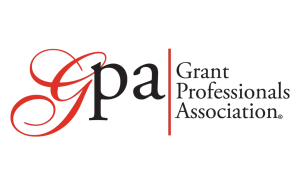Many funders only want to work with well-established nonprofits. What do you do if your organization is new” You’ve got all the pieces in place. You’ve identified the role your nonprofit can play in solving a community problem, but foundations don’t know you and your organization has no track record?
Start with your genesis. New organizations that are created in response to a community demand, or grow out of work already being done, are in better shape than those that can only claim “we thought this would be a good idea,” according to Cathleen Kiritz, president and chief executive office of The Grantsmanship Center in Los Angeles, Calif.
Lucy of Peanuts fame might get away with ideas for five cents, but “new ideas” flood a foundation office all day long, every day. Does your new organization exist because of what’s gone before and what a constituency says it needs now?
Perhaps your nonprofit grows out of the lived experience of the founder. It’s not uncommon for an organization to grow up around an individual who has experienced a personal loss or who has battled a disease. The founder’s story is compelling, it’s clear that others are affected and there is something to do about it beyond acknowledging the suffering.
Who are the people who will “do something about it?” Your organization might have no history, but individuals do, according to Kiritz. Develop and present the credentials and qualifications of founding board members, senior staff, program managers, key volunteers. Be sure that someone on that team has demonstrated her or his ability to manage an organization — administrative ability is a part of what’s required (and sought by funders).
Who are the people and organizations willing and able to endorse your launch?
There’s a legend (perhaps apocryphal) about J.P. Morgan refusing to invest in a new company, instead draping his arm around the shoulder of the young entrepreneur (thus implying an endorsement). True or not, the story has a point for new nonprofits. Are there civic leaders, local elected officials, long-standing and accomplished organizations willing to speak on your behalf? Endorsements are not a substitute for a solid program but they are often helpful in legitimizing a new nonprofit.
If your new nonprofit has a compelling “creation story,” the community or constituency wants and needs the work, key people bring essential skills and preparation — and there is an endorsement of your plans by better-established people or organizations — you’re in good shape to make approaches to potential funders. If you have none of these elements in place but have a good idea, it might be better to build toward “grant readiness” instead of knocking on foundation doors. © Copyright 2021 The Grantsmanship Center








